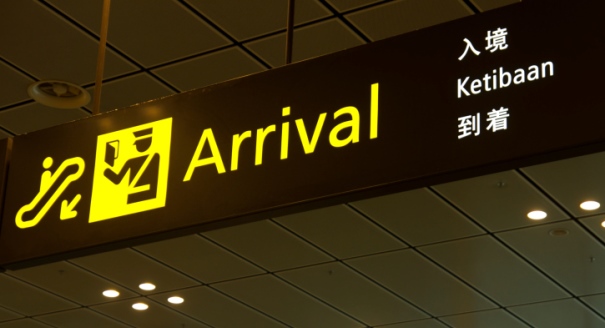Following recent boat disasters in the Mediterranean and against the backdrop of right-wing, anti-immigration sentiments in Europe, our experts discuss the issues surrounding immigration in Europe.
Hugo BradyBrussels representative and senior research fellow at the Center for European Reform
Former Libyan leader Muammar Qaddafi played crudely, but tellingly, on European fears of uncontrolled maritime immigration when in 2010 he demanded that the EU pay him €5 billion ($6.3 billion) to stop the boats and avoid a “black Europe.” The late Qaddafi and his methods are unlamented, and boat people still provoke panic all around the world—not just in Europe.
But Libya and most other North African countries are now mired in internal political turmoil following the Arab Spring. This is a key reason why European politicians can get away with responding to the Lampedusan and Sicilian tragedies with the predictable platitudes, hand-wringing, and half-measures. They have next to no working administrations in North Africa with whom to do deals on immigration, including on humanitarian issues.
Three things are needed in order to avoid more Lampedusas. First, functioning local administrations in Egypt, Libya, and Tunisia need a sophisticated understanding of immigration flows. Second, the Europeans must make a serious offer on multi-entry visas. Third, the EU should set up a sustained civilian-military mission to take apart a centrally organized international smuggling business with nodes all over sub-Saharan Africa and the Middle East.
Without these steps, Europe will remain trapped in a self-sustaining loop of paranoia, fear, and guilt on this difficult issue.
Costanza HermaninSenior policy officer for equality, justice, and home affairs at Open Society Foundations
The European response to immigration is always ambivalent, something along the lines of “We don’t really want immigrants, but we can’t afford to reject them because of our values, aging population, economic needs, and foreign policies.” Europe has never perceived itself as a continent of immigration—as is obvious whenever people approach its borders. But in its foreign policy, the EU is bound by its values to keep its door open to refugees.
This results in mixed messages, both to potential migrants and to European citizens. For example, in 2009 Italy adopted a policy of pushing back boats full of would-be refugees in the high seas. But, at the same time, the country’s Lega Nord party had to limit its discourse to “clandestines,” because the economies of Veneto and Lombardy depend on the immigrant workforce.
Looking ahead, the economics and the politics of immigration point in opposite directions. Labor migration will be increasingly needed in Europe because, in spite of the crisis and high unemployment, Europeans are aging and do not willingly take up low-skilled jobs; but political opposition to immigration is growing. The time for a different narrative has expired, but mainstream parties are reluctant to put one forward. The longer they dither, the more votes will go to populist, anti-immigration parties.
Gianni RiottaMember of the Council on Foreign Relations
Europe needs immigrants but pretends not to. The demographic trends in every single European country point to an aging population. Yet a strong anti-immigration movement is taking hold on the continent.
The catalyst behind this movement is the economic crisis, rather than racism. Low-skilled people are losing their jobs thick and fast, and they resent immigrants ready to accept employment on lower wages and under worse conditions. A “poor man’s war” is being waged in Europe’s inner cities, often far from the media limelight.
At the same time, a tragedy of biblical proportions is unfolding in the Mediterranean. Thousands of people are being lost at sea, as the civil war in Syria chases many refugees on to rickety boats. Nobody is in charge. Officially, responsibility for immigration within the EU lies with the member states. Yet the human waves elude the authorities, leading to massive suffering and loss of life.
The EU should address the emergency on its doorstep with a comprehensive plan. That should include training workers, helping their countries of origin, accepting more immigrants in a less frantic way, and adopting a more rational, humane, and compassionate approach to immigration.
But the EU won’t do that. The human waves will continue to wash up on Europe’s shores—if they make it that far. Immigrants will continue to drown in the Mediterranean. Sicilian fishermen will continue to tell horror stories of bodies floating in their nets—even if the world’s media are not there to listen.
Daniel SmilovProgram director for political and legal research at the Center for Liberal Strategies in Sofia
Europe needs immigrants because of its demographic trends and aging populations. But I’m not sure that it actually wants them. Europe wants some imaginary immigrants, corresponding to an imaginary set of circumstances. But the problem is that real immigrants do not fit this imaginary profile.
Bulgaria illustrates this point. Bulgarians worry about the effects of the country’s demographic trends. Between 40,000 and 50,000 people emigrate every year, but when a few thousand immigrants arrive, it is viewed as a humanitarian disaster. Immigrants are portrayed as ruining the social fabric of the country. As a Bulgarian, I am very disappointed with this reaction by my own society.
Aleksander SmolarChairman of the board of the Stefan Batory Foundation in Warsaw
Europe is very ambiguous about immigrants. There is a tension between the need for immigrants for demographic reasons—with every government wanting to select “good” migrants—and more skeptical political and social attitudes. Many Europeans profoundly dislike the rising number of immigrants in Europe, in particular those from Islamic countries.
This is a dramatic cultural problem that is very difficult to solve, especially as the extreme right is exploiting notions of togetherness and community. Feelings of ostracism and a tendency to close Europe’s borders—despite the irrationality of doing so—are also a major factor in Europe’s immigration debate today.






.jpg)